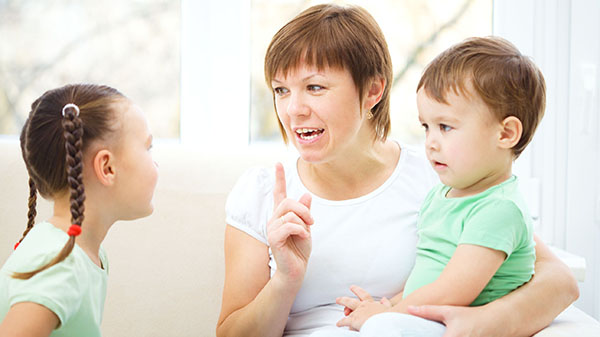Second time around…
Thomas and Sarah thought they would spend their retirement traveling, serving more at church and spoiling their five grandchildren. But it didn’t work out that way. Their lives changed dramatically when their daughter was arrested, and her children — ages 9 and 12 — came to live with them. They now have custody of the children and are thankful they can provide a safe and loving home for their grandchildren. However, they have a lot of questions about the future. Will they be able to keep up with the busy lives of two preteens? Will health issues be a problem? How will they balance their role as grandparents and caregivers? Can they really afford to raise two children at this stage of their lives?
Grandparents parenting grandchildren is not a new situation, but an increase in substance abuse and incarceration in the last 40 years has led to a steady increase in the number of grandparents who have taken on this role. Today nearly one in four grandparents in Alabama and one in 10 nationally are raising at least one of their grandchildren under age 18.
For adults who find themselves parenting the second time around, there are unique emotional, social and legal concerns, according to an online article by Yanyi Djamba, director of the Center for Demographic Research and associate professor of sociology at Auburn University Montgomery.
On an emotional level, grandparents are torn between their concern for their adult children and their grandchildren, Djamba explained. Some of these grandparents may be caring for their own aging parents as well, pulling the caregiver between several distinct generations.
“In these intergenerational households, who to care for and how much time to devote to each generation becomes an everyday challenge,” Djamba said.
In addition, grandparents raising grandchildren often have less time for themselves and their own interests, leaving them feeling socially isolated, according to Wanda Ruffin, a retired family life specialist for the Alabama Cooperative Extension System who worked with many grandparent support programs in north Alabama during her career.
“Most of these adults have made many plans for their retirement, and suddenly, all their plans are changed,” Ruffin said. “They are at a certain stage of life chronologically, but they have essentially gone backward to another stage in life to be parents again.”
Grandparents who are parenting lose the role of grandparents for these children, Ruffin said, and may not have as much time for other grandchildren as a result.
For those grandparents whose own children have abdicated parenting responsibilities, guilt is a big factor too, Ruffin said.
“They often feel they are in the situation they are in (parenting their grandchildren) because they did something wrong as parents,” she said.
Such feelings can have negative legal and financial repercussions, Ruffin said. Grandparents often refuse to pursue legal guardianship or child support because such actions force them to take their children to court. The financial realities of a household that has suddenly gone from one or two people to several may mean that a retired grandparent is forced to go back to work in order to provide for the family.
What these families have in common is that they do not feel that they had any other options, Ruffin said.
“There may not be anyone else in the family who can take responsibility for the children, and they don’t want to see their grandchildren go into foster care,” she said.
One of the best ways for grandparents parenting again to combat these emotions is to talk to others in the same situation, Ruffin said.
“It doesn’t make the problem go away or lessen the issues, but it helps when the grandparent can open up to someone else and realize they are not the only ones going through these things,” she said.
The best encouragement comes from members of a support group or friends in the community who also are parenting their grandchildren, since they can relate directly to the concerns of this new family structure, Ruffin said.
For Christian grandparents, restoring and building the faith of their grandchild is of utmost concern as well, said Lisa Keane, a licensed professional counselor with Pathways Professional Counseling, a ministry of the Alabama Baptist Children’s Homes & Family Ministries. Often children who have experienced hurt or loss, such as abandonment by a biological parent, may view God negatively.
“If their parent was abusive, they may picture God in a similar way. If their parent left them, they may fear that God will abandon them. If their parents died, they may see God as evil or bad for taking their parents away,” Keane said.
To help a child through these feelings, Keane said it is very important to talk about God’s character and to review Scripture with children that emphasize that God is always present in our lives. Verses like Deuteronomy 31:8, which says, “It is the Lord who goes before you. He will be with you; He will not leave you or forsake you. Do not fear or be dismayed,” are great discussion starters, Keane said.
“Read that verse together, then spend some time talking with your grandchild about the passage. Does she struggle to believe that? Does he think it does not apply to him? Help your grandchild see that while people and circumstances on this earth will let them down or make them sad, our Heavenly Father is perfect and cannot let them down. It simply is not in His character.”
Keane also warns that grandparents should not directly bring up the bad choices of the children’s parents while discussing these issues.
“While it may be tempting to point out how this relates to their situation, let them connect the dots,” she said.
Through Scripture, Keane said, grandchildren, grandparents and even wandering parents can find comfort in that while bad things will happen on this earth, we have a God who is constant and steady that we can trust, regardless of the present circumstances.






Share with others: